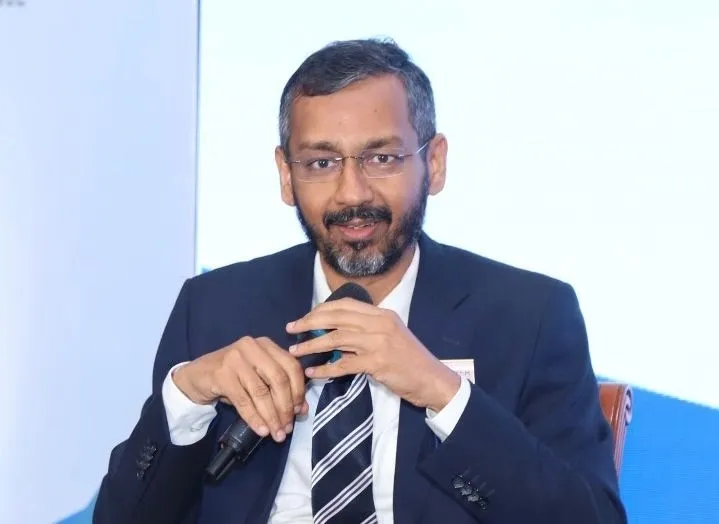Indian Boards, Cybersecurity & Risk Management

In the corporate landscape, the risk function often finds itself relegated to the sidelines, with many companies giving scant attention to its critical role. CEOs, absorbed in the demands of day-to-day operations, frequently limit interactions with Chief Risk Officers (CROs) to routine business reviews, neglecting the opportunity to delve into the trends and learnings emerging in the dynamic world of risk.
Even in instances where a dedicated risk function exists, it often faces a lack of CEO engagement beyond obligatory check-ins. Boards, too, exhibit a perfunctory approach, primarily focusing on the compliance facets of the risk function. This oversight poses a substantial threat, as it diminishes the potential for proactive risk management and strategic resilience, leaving organisations vulnerable to the unseen challenges that the evolving landscape of risks can pose. The integration of risk discussions into the core fabric of corporate strategy is not just a formality but a core necessity for sustained success in an unpredictable business environment.
Exponential disruptions on a global scale are reshaping the foundations of business models and challenging the sustainability of enterprises. The accelerated pace of technological advancements, geopolitical shifts, and unforeseen events can swiftly render existing business models obsolete. To navigate these uncertainties, boards must adopt a proactive stance. Rather than viewing disruption as a threat, they should consider it an opportunity for strategic reinvention.
Boards need to foster a culture of adaptability and innovation within their organisations. This involves continuously scanning the external landscape for emerging trends, investing in technology that enhances agility, and cultivating a workforce equipped to embrace change. Collaborative decision-making, scenario planning, and stress-testing existing strategies against potential disruptions are integral components of proactive risk management.
Boards should encourage a forward-thinking mindset that positions their businesses not just to withstand disruption but to thrive in the midst of uncertainty, transforming challenges into catalysts for growth and resilience. In an era where digital landscapes evolve at an unprecedented pace, board members find themselves at the crossroads of technological advancement and looming threats. Boards must possess competency and a deep understanding of digital, cyber, and emerging technologies to effectively navigate the complexities of the modern business landscape.
Cybersecurity is no longer a buzzword; it’s the frontline defence against exponential disruption. The rapidly evolving landscape of cybersecurity, coupled with technological advancements, demands leaders who can navigate the complexities of digital risks with foresight and agility. The traditional hierarchical structures may prove inadequate in the face of dynamic cyber threats.
Directors can no longer afford the luxury of abdicating oversight of cybersecurity or merely relegating it to operating managers. Delegating cybersecurity responsibilities without active board engagement is a perilous oversight that can expose an organisation to severe consequences. Boards must transcend a passive approach, recognising that cybersecurity is integral to the very fabric of business strategy. It demands a proactive and informed stance, with directors actively participating in shaping, implementing, and overseeing robust cybersecurity measures.
For Boards of Directors, the evolving landscape of cybersecurity mandates the development of innovative approaches in fulfilling their fiduciary responsibility to shareholders and overseeing the management of business risks. Boards must embrace a forward-thinking mindset, fostering a culture of continuous learning and adaptation to effectively steer the organisation through the challenges posed by the cybersecurity landscape.
Board members must transcend a mere check-box approach to overall risk management; they must embody knowledgeable leadership that prioritises and actively engages in risk mitigation. In a world where risks are ubiquitous, directors must not only comprehend the intricacies of potential threats but also demonstrate an unwavering commitment to navigating these uncertainties. A proactive stance is crucial, requiring boards to be agile, alert, and even adopt a healthy level of paranoia about risk.
Boards should foster a continuous culture of risk assessment and scenario planning, foreseeing future challenges with strategic foresight. This involves an ongoing dialogue among directors, executive leadership, and risk management professionals, creating an environment for shared insights and actively cultivating risk intelligence. It’s not just about addressing today’s risks but developing an organisational mindset that anticipates and navigates future uncertainties. Establishing clear communication channels and frameworks is crucial for dynamic information exchange about emerging risks. This ensures that risk management isn’t a rigid process but one that’s collaborative and adaptable. Personal commitment and active involvement in risk oversight become non-negotiable components of effective governance.
The author Dr. Srinath Sridharan is a Policy Researcher & Corporate advisor. / X : @ssmumbai
Disclaimer : Views expressed in the article are the personal opinions of the author.











